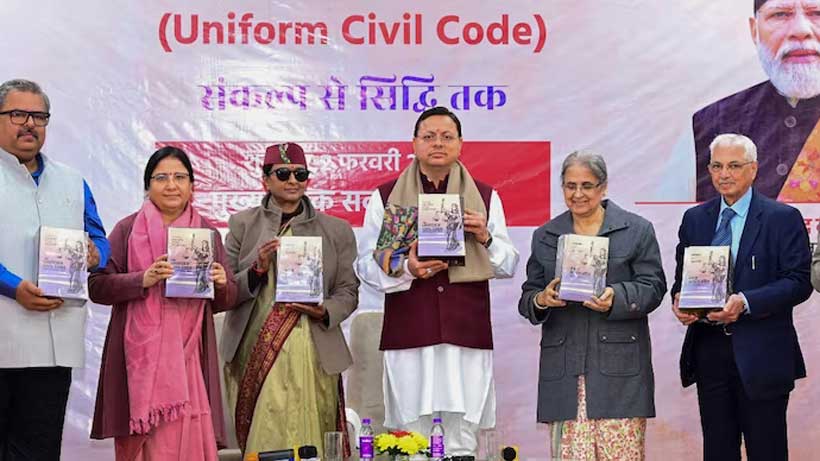Uttarakhand becomes first state to adopt the BJP's Uniform Civil Code
The legislation, which provides for the registration of marriages, divorces and cohabitation for members of all religions, officially came into effect today and will apply to Uttarakhand residents living in other Indian states. For law supporters, it is an important reform in favour of equality, but it abolishes several Muslim religious customs, and risks creating jurisdictional conflicts between the central and state governments.
Dehradun (AsiaNews) – Uttarakhand has become the first Indian state to adopt the Uniform Civil Code (UCC), which came officially into force today at 12.30 pm (local time) and apply to all Uttarakhand residents, including those living outside the state.
The UCC introduces significant social reforms such as equal property rights for sons and daughters, ban on polygamy, the mandatory registration of marriages regardless of religious customs, and the abolition of the distinction between legitimate and illegitimate children, guaranteeing them equal rights.
Cohabitation will also have to be registered with severe penalties in case of failure to register.
The reform, backed by Prime Minister Narendra Modi's Bharatiya Janata Party (BJP), has been described as a milestone for a truly secular civil code.
A modern nation does not need “dual laws,” Modi said in a 2023 speech, stressing that the UCC represents a crucial step toward eliminating gender discrimination in personal laws.
The prime minister has repeatedly referred to Article 44 of the Indian Constitution which provides for a uniform civil code for the whole country.
The law has aroused criticism and raised concerns. Detractors argue that it risks ignoring India's rich cultural plurality and compromising the cultural and religious identity of minority groups, particularly Christians and Muslims, and violate their right to follow personal religious practices.
The reform abolishes all practices related to marriage and divorce under Muslim personal law, so many fear that the UCC could be used to marginalise minorities and encourage communal tensions between Hindus who support the BJP and other groups.
Even at the legal level there could be problems because personal laws are a matter of conflict between the Union government and individual states, sparking disputes between different levels of government.
Uttarakhand Chief Minister Pushkar Singh Dhami, who had promised to implement the law during the 2022 state election campaign, led the event, inaugurating an online portal for residents and officials, where all documents will be registered.
“We are fulfilling our commitments. The abrogation of Article 370 in Jammu and Kashmir was an example,” Dhami said, referring to another BJP key goal, the abolition of the special autonomy of the Muslim majority state, which is disputed between India and Pakistan.
“Today, the Indian republic stands stronger under the leadership of Prime Minister Narendra Modi,” he added.
24/06/2014







.png)










